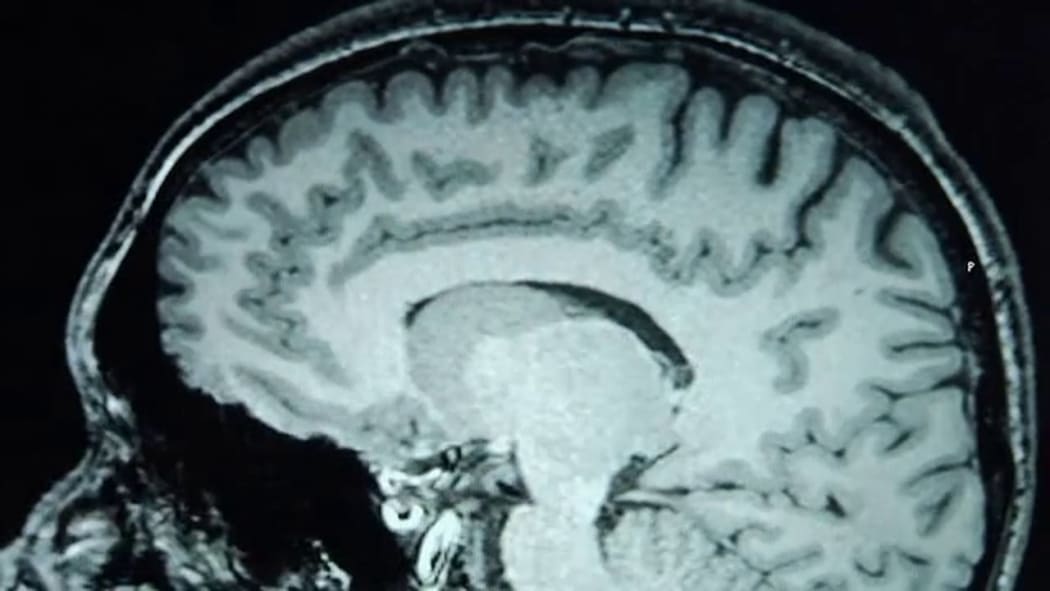The Dunedin Study has just released the results of its latest research - this time it is looking at antisocial behaviour.
Researchers have been analysing brain scans of 600 out of the 1000 people who have taken part in in the study.
The longitudinal Dunedin Study started in 1972 and has followed over 1000 individuals since birth. The last time they were assessed was last year when the study participants were 45, Dr Gina Forster from the department of anatomy at the University of Otago says.

brain scan Photo: vimeo
This part of the study looks at brain structure and how that links to lifelong antisocial behaviour. The results have just been published in The Lancet Psychiatry.
Anti-social behaviour is a broad term, Dr Forster says.
“It can mean a number of things, ranging from individuals that struggle to meet daily demands - and demands at work and demands at home - to those that have quite inappropriate behaviours - aggression, violence, criminality and things like drug use and inability to control emotion and behaviour.”
The idea of looking at how brain structure relates to anti-social behaviour is relatively new, she says.
“Typically, it's been monitored more in the psychological realm and with psychologists following individuals, in this particular study for multiple years, assessing behaviours over those years.
“This is really quite a new development to look at brain structure as well as the behaviour.”
The researchers are using scans to look at the thickness of the brain and the cortex, she says.
“The cortex is the area of the brain that's really important for control of behaviour and control of emotion. And we think that thickness of the cortex is related to the function of the brain as well.
“So, in this case, by looking at the structure of the brain, they were able to tell that parts of the brain were actually thinner - had less tissue. And so, we make the assumption that there is less functioning of those brain regions.”
People who show persistent anti-social behaviour from adolescence onwards are probably genetically pre-disposed as well as having a thinning cortex, she says.
“But also early life trauma and stress does this as well. Drug use can also do it. And so, there's a number of factors that probably combine to produce a thinner cortex.”
She says the research could have implications for future treatment.
“It means is that we do have a better understanding of brain functioning in individuals that have antisocial behaviour. Hopefully this will be used to reassess how treatment and therapy are applied.
“Because if you have brain regions that are involved in social behaviour control, that aren't functioning that well maybe we need to think about changing the way we approach therapy to engage those regions better or differently or try things that engage other brain regions.”
Related

